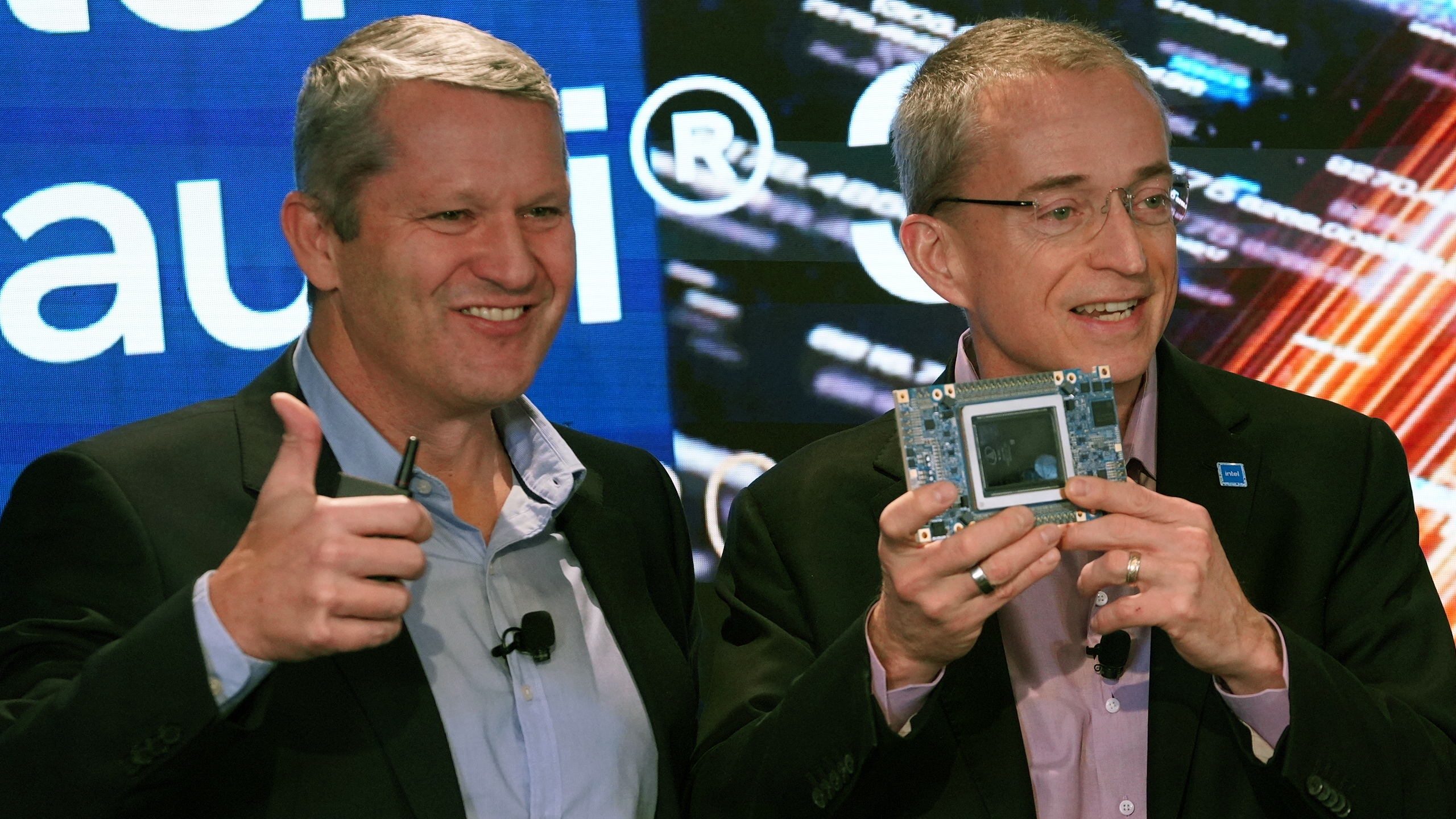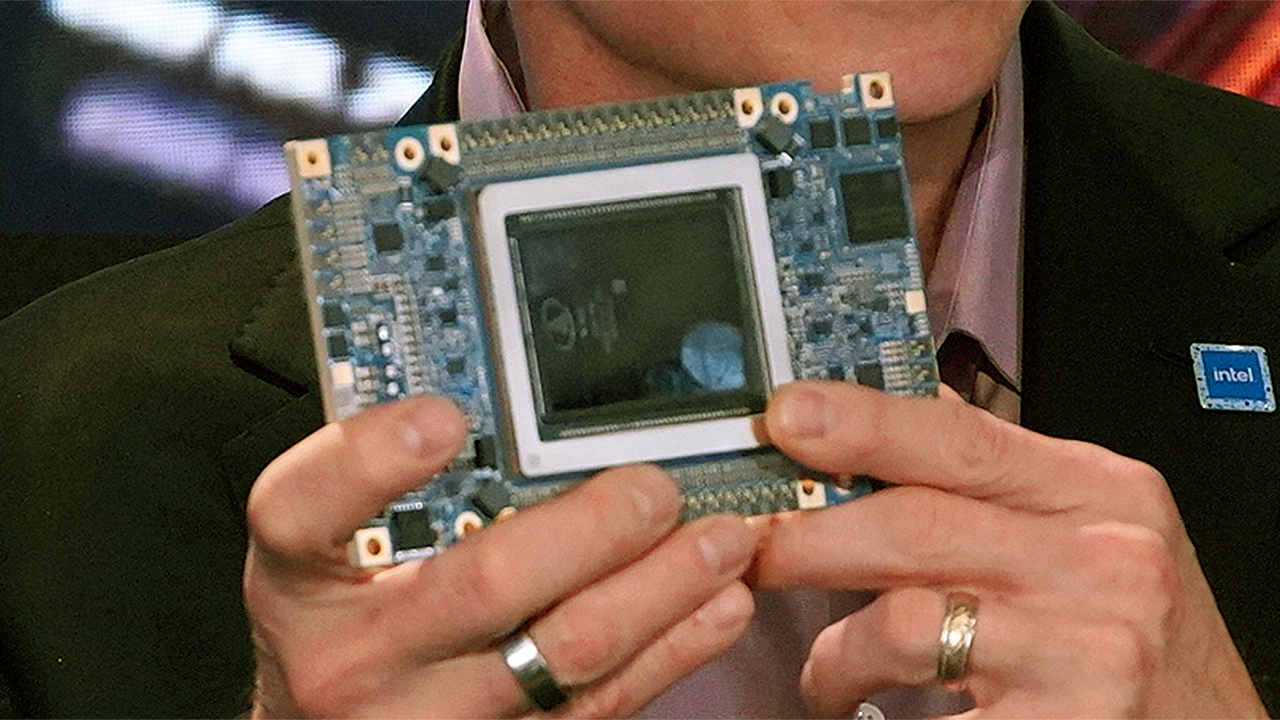
Intel showcased its Gaudi3 Processor for artificial intelligence (AI) workloads alongside the formal introduction of its 14th-Gen Core Ultra "Meteor Lake" processors and 5th-Gen Xeon Scalable CPUs for datacenters. The accelerator is set to arrive in 2024 and will offer a significant performance bump compared to its predecessor, the Gaudi2.
Intel CEO Gelsinger discussed the upcoming release of Intel's Gaudi3, which is scheduled for next year, and showed off the new AI accelerator aimed at deep learning and large-scale generative AI models for the first time. The new unit looks like a huge module (OAM, we presume) with a massive ASIC and multiple HBM3 (or HBM3E) memory stacks on it. The ASIC package looks significantly larger than the Gaudi2, so we presume that it is equipped with eight HBM3E stacks on it (rather then with six in case of Gaudi2). Based on a slide Intel presented at SC23, Gaudi3 is not a monolithic processor, but rather a dual-chiplet design that fuses together two processors.
In addition, Intel announced that the Gaudi3 will offer four times higher BF16 performance, two times faster networking performance, and 1.5X higher bandwidth compared to Gaudi2.
"Our Gaudi roadmap remains on track with Gaudi3 out of the fab, now in packaging and expected to launch next year," said Pat Gelsinger, CEO of Intel, at the company's latest conference call (via SeekingAlpha). In 2025, Falcon Shores brings our GPU and Gaudi capabilities into a single product."

Intel's Habana Gaudi2 already is a quite promising product, with 24 fully programmable Tensor Processor Cores (TPCs) and 96GB of HBM2E memory, capable of challenging Nvidia's H100 GPU for AI and HPC. Intel's Habana Gaudi3, which is expected to hit the market in 2024, will offer significantly improved performance ove its predecessor, Gelsinger said earlier this year.
Intel said the Gaudi line-up has experienced significant growth — attributed to its proven performance and competitive TCO, as well as its reasonable pricing. The company is confident that the rising demand for generative AI hardware will position Intel to secure a more substantial share of the accelerator market in 2024, primarily through its range of AI accelerators, which will be spearheaded by Gaudi.
"We are pleased with the customer momentum we are seeing from our accelerator portfolio and Gaudi in particular, and we have nearly doubled our pipeline over the last 90 days," said Gelsinger on the call.







